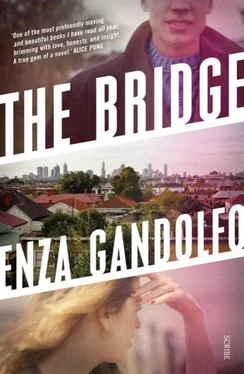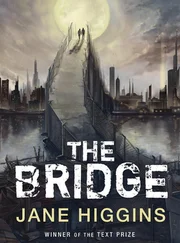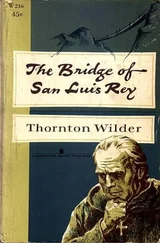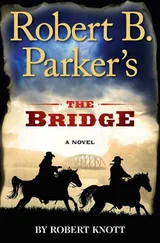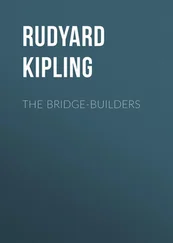‘I didn’t mean to hurt Ash. Please tell them I’m sorry.’
‘Have you thought about school? I could arrange for you to sit the exams,’ Sarah said.
‘No. Oh no, I couldn’t do that,’ Jo said.
‘Well, you could come out for a while and have a cup of tea with me and your mother. I wanted to ask you a few things.’
‘Not today, please,’ Jo pleaded and turned away from the door.
It took less than a couple of minutes to find the house. There were cars parked on either side of the street, so she had to double-park. The house, a large weatherboard to which a second storey had been added, was set back on a large block. There was a small rose garden along the front fence and several well-established Japanese maples on either side of the central path.
When Sarah knocked on the door, a teenage girl answered.
‘This is for Ms White. She asked Mrs Neilson for Ashleigh’s belongings.’
Silently, the girl took the bags and shut the door.
Sarah suspected that whatever Ashleigh’s mother hoped to find in the bags, she’d be disappointed.
Just as she stepped off the porch onto the path, she noticed someone — a man standing at the window, holding the curtains open. Ashleigh’s father, Sarah assumed. As he stared at her, she felt both his rage and his restraint emanating through the glass. She paused to meet his eyes. His gaze, intense, didn’t shift. She turned and walked down the path and to the car, and as she pulled out she peered in the rearview mirror. The man was still standing at the opened window, his gaze following her as she took off down the road.
Antonello headed towards Francis Street. At the lights, he waited and watched as a long line of semi-trailers — fully loaded with tanks and containers, plastered with ‘hazardous chemicals’ signs — headed towards Williamstown Road to make their way onto the West Gate Bridge.
The trucks flew past the dusty weatherboard houses, their motors roaring as the road opened up in front of them, seemingly oblivious to the large red signs demanding CUT TRUCK TRAFFIC — PEOPLE LIVE HERE nailed to front fences. Some drivers were drinking coffee or Coke, while others smoked cigarettes and flicked their ash out of their windows. Antonello imagined that to the drivers, peering down from their high cabins, the cars wedged between them looked like a series of moving Lego blocks.
Antonello had been teaching Ashleigh to drive along this stretch of road. He warned her to keep her distance, to stay back, to give way to the trucks as they swung into a right-hand turn. He insisted it was a serious exercise, and was easily annoyed with her tendency to be distracted by activity on the street, other drivers, and her phone, which beeped constantly to announce another text message. She’d laughed at his seriousness, teasing him, telling him to lighten up, trying to make him laugh with silly jokes. He hadn’t relented. Being one of her driving instructors was a responsibility he took seriously. It was his duty to make sure she was a competent and safe driver so that she wouldn’t have an accident. So that she wouldn’t die on the road.
To avoid the risk of seeing Jo or her mother, Antonello kept to the other side of the road, with his head down and his eyes on the footpath. But he sensed Jo’s presence, and several times he thought he heard their squeaky front gate and the rustle of the trees and bushes that hid her house from the street. Behind the cyclone fence, under the blue sky, the tanks soaked in the morning sun.
Back at Alex’s, family and friends were still gathering. As more people had poured into the house that morning, Alex and Rae and Jane had retreated, shrinking into corners, disappearing. The ordinary rooms were becoming unfamiliar. There were too many flowers, the bunches of blooms garish and overwhelming. Too many voices. Too many people.
Nicki had arrived with food, and together with Rae’s sister Rebecca, covered the kitchen benches with platters of sandwiches. But no one ate. Rae’s parents, who’d arrived straight from the airport, in their holiday shorts and t-shirts, wanted Antonello to give them answers to questions they couldn’t ask their daughter, questions Antonello hadn’t even thought to ask. Their grief made them interrogative, as if the answers to queries about time, about speed, about states of mind would bring Ashleigh back.
‘ I morti non tornano ,’ he whispered.
‘Sorry,’ Rae’s father, Gary, said. ‘What did you say?’
Paolina nudged his leg under the table.
‘Nothing. I’m sorry, I’m too sad, I can’t speak,’ he said, giving the other man a conciliatory pat on the back. He didn’t want to witness his own grief reflected in the eyes of the other grandfather. There was a time when the two men had been rivals for Ashleigh’s attention and her favour, childish behaviour that manifested itself in too many toys and outings and the invention of silly games.
When the funeral directors arrived, two women in grey suits lugging folders and suitcases on rollers, Antonello followed the others into the lounge room. Alex and Rae struggled under the weight of decisions — the coffin, the chapel, the cemetery, flowers, songs, prayers, eulogies. Jane snuck out of the house, into the garden, her skateboard under her arm, the dog at her heels. Antonello should’ve stayed. He should’ve stayed, but instead he’d absconded. He made excuses to himself. There was too much talk of God and prayers and hymns; he was so overwhelmed by the desire to echo Alex’s outburst on the night of the accident, to shake each of them as they sat around the room — yes, even Paolina — until they understood there’s no fucking God.
What he needed was a mate, someone who would listen to his rage and his grief, who would let him empty himself of it, so that he might be of some use to his son and daughter-in-law, of some help to his granddaughter. In the past, Paolina had been his only confidant, but since the cancer, he’d taken to hiding his rage, his dark thoughts and moods, from her — she had enough to deal with. He didn’t trust his brothers with his emotions. He could trust both of them, Vince and Joe, with his life, with the lives of his children and grandchildren; they were better fathers, better men. But Joe would tell him to calm down, pat him on the back, and expect him to be able to do what he had to do. And Vince wouldn’t know what to say. He would be a stream of platitudes: You need to be strong, gather yourself up, it gets easier …
Under the bridge, the thirty-five red and grey stone pillars, the sculptures that were part of the memorial, threw long dark shadows. The wind howled, and overhead the traffic was a constant clatter as cars and trucks sped over the ridges and joins that stitched the bridge together. Antonello longed for Sam and for Slav, for their friendship. It was futile to try and push the memories back; they had a force of their own.
‘Hey paesano , come and sit with us,’ Sam had called out to him at smoko on his first day, and when Antonello slipped into the bench seat next to Slav, Sam whispered, ‘No bloody Australiani here. Dagos only.’
After that most lunchtimes, they sat at the same table. On sunny days they took their cuppas out to the same spot on the river, and after work, exhausted, they settled at the same corner of the bar at the Vic. They were his first real friends in Australia. At school, it had taken him most of the first year to learn enough English to hold a conversation, and even the sons of Italian migrants who could speak Italian stayed away. Once he left school, working on the building sites with Bob, he tended to keep to himself. He spent his spare time with Joe and Vince, and on the weekends, with some of his cousins who lived across the city in Richmond and Collingwood, but he was lonely, yearning for friends his own age and missing his childhood companions, the boys and girls he grew up with in Vizzini. A couple were in New York. Several were in Australia, one or two in Melbourne, but he only saw them occasionally, at weddings and big religious celebrations. Away from the village, it was too difficult to connect.
Читать дальше
